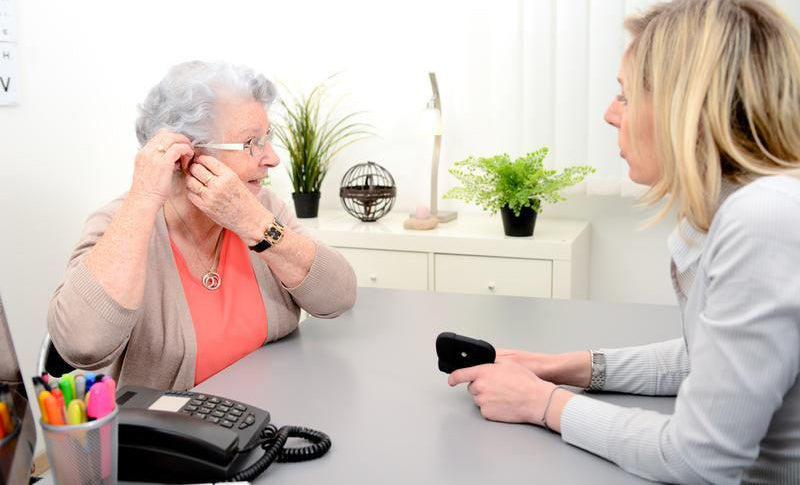With the natural aging process, especially after the age of 50, the body of elderly organs begin to age in various ways and degrees. The cochlear basilar membrane, auditory cells, and auditory nerves start to age and atrophy. Among elderlies between the ages of 65 to 75, the incidence of hearing loss can be as high as 60%. Hearing loss in old age not only affects the quality of life, but also affects their personalities. Therefore, preventing or slowing down the process of hearing loss has become an essential part of senior health.
Common causes of hearing loss in elderly
Many seniors are confused about hearing loss: they have no history of ear diseases such as ear infections, trauma, and / or ototoxicity, but why do they suffer hearing loss at a younger age?
Most of us know that patients with chronic nephritis are often accompanied by high blood pressure, edema, etc., and high blood pressure is one of the critical causes of hearing loss. In addition, patients with chronic nephritis frequently use diuretics, such as furosemide, diuretic acid, etc. Some with severe diseases even use antibiotics that can damage their hearing, such as streptomycin and gentamicin, and in which these drugs vary in their degrees of ototoxicity.
In addition, cardiovascular and cerebrovascular diseases are also significant causes of hearing loss in elderlies. Hearing loss is often a manifestation of arteriosclerosis, coronary heart disease, and transient cerebral ischemia. A survey shows that 70% of presbycusis suffer from atherosclerosis, and the severity of hearing loss positively correlates with the degree of arteriosclerosis.
Effects of hearing loss in elderly

We know hearing loss will reduce the overall quality of life. In addition, it also has a significant impact on one's personality. Psychology researchers at the University of Gothenburg in Sweden have found that hearing impairment can cause older people's abilities and self-confidence levels to decline, and their personality traits will become unfriendly and less cheerful.
The researchers selected 400 seniors between the ages of 80 and 98 and followed them for six years. They were assessed every two years for physical and mental developments and certain personality traits, including extraversion, friendliness, and emotional stability. The analysis showed that even among the group of elderlies who remained emotional stabled during this period, most of them became less friendly and cheerful as they got older.
Interventions for hearing loss in elderly
Peace of mind
Excessive mood swings can easily lead to an imbalance of the human autonomic nervous system, which will induce or aggravate inner ear ischemia, edema, and other phenomena, therefore damaging hearing. Hence, elderlies should try to maintain a peaceful mind.

Eliminate or reduce noise exposure
If one stays in a noisy environment for a long period of time, the auditory organs constantly remain excited, which can easily lead to fatigue. With continuous exposure to loud noises, the auditory cells may atrophy, resulting in hearing impairment;
Take care of your ears by avoiding putting sharp or defiled objects into your ears
Experts point out that the elderly should not put any sharp, complex, or defiled objects into their ears to avoid infections and hearing loss. If you want to clean out moisture or ear wax, the safest way is to use cotton swabs only at the entrance of the ear canals, or have a doctor help you to clean out your ears.
Avoid smoking and drinking
Excessive smoking and drinking may also damage the auditory nerves, and it may also cause abnormal blood supply, resulting in insufficient blood supply to the inner ears, thus seriously affecting hearing.
Actively treating chronic underlying diseases
People with any chronic diseases such as hypertension, coronary heart disease, diabetes, chronic bronchitis, etc. should be more cautious. This is because if any of these chronic underlying diseases are not under control medically, they could impact the blood supply of the inner ears, and therefore damage hearing.
Massage around the ears
Hearing loss in elderlies is also related to weakening blood circulation in the inner ears. Local massage to the relevant acupoints around the ears can promote sufficient blood supply to the inner ears and therefore prevent declines in one’s hearing sensitivity.

